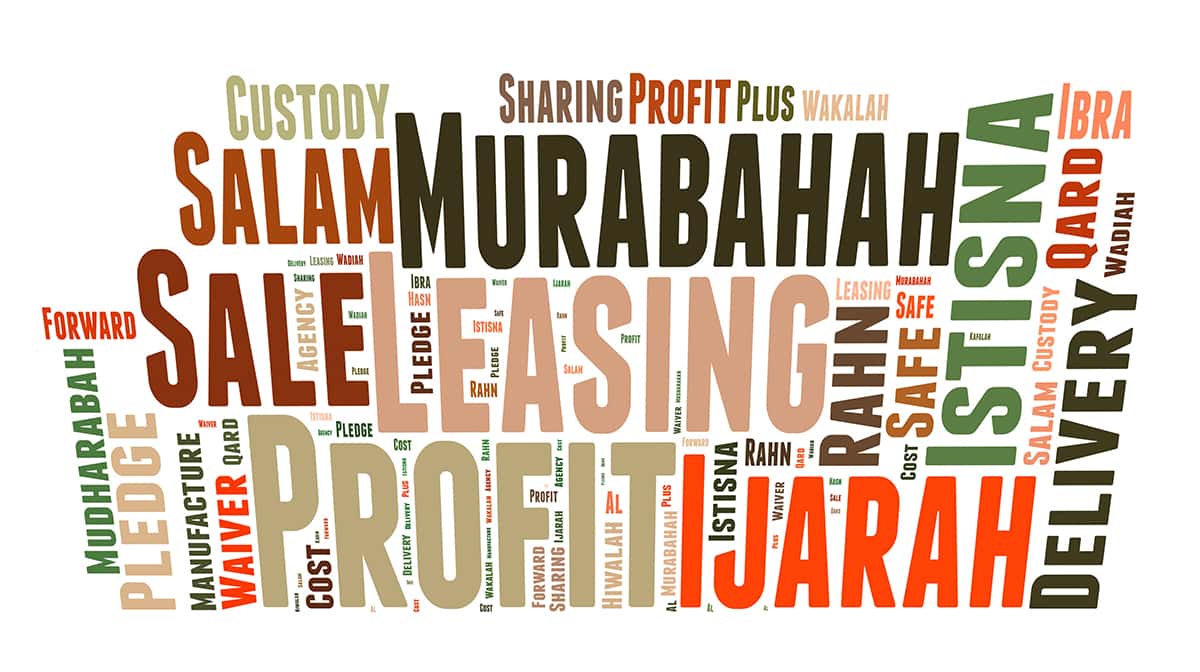The second episode of a Global Finance FAQ web series on Islamic finance.
Many of the products offered by Islamic financial institutions are similar to Western or conventional financial institutions, even though interest and speculation are prohibited. Banks are by far the largest players in the field of Islamic finance; some are exclusively Islamic, while others offer sharia-compliant products but remain largely conventional.
Apart from the absence of interest rates, the key concept of Islamic finance is risk sharing between parties in all operations. Here are some of the top Sharia-compliant products offered by banks. They have Arabic names, but in most cases we can find an equivalent in conventional Western banking.
Murabaha or cost plus sales: This is the most common product in asset portfolios and applies only to the purchase of raw materials. Instead of taking out an interest loan to buy something, the customer asks the bank to buy an item and sell it to him or her at a higher price on installment basis. The bank’s profit is determined in advance and the sales price cannot be increased after signing the contract. In the event of late payment or default, several options are available, including a third party guarantee, collateral guarantees on the customer’s property or a fine to be paid to an Islamic charity for not having access to the bank’s income.
Ijara or leasing: instead of providing a loan to a customer to purchase a product such as a car, the bank purchases the product and then rents it to the customer. The customer acquires the item at the end of the lease contract.
Mudaraba or profit sharing: An investment in which the bank makes available 100% of the capital intended for the creation of a company. The bank owns the commercial entity and the customer provides management and labor. They then share the profits according to a predetermined ratio that is usually close to 50/50. If the company goes bankrupt, the bank will bear all financial losses unless it is proven that it was the customer’s fault.
Musharakah or joint venture: An investment involving two or more partners, where each partner contributes capital and management in exchange for a proportionate share of the profits.
Takaful or insurance: Sharia-compliant insurance companies offer products that are similar to conventional insurance companies and function like an investment fund. Instead of paying premiums, participants pool money and agree to redistribute it to members in need, according to pre-established contracts. The common pool of money is managed by a fund manager.
The fund can be managed in different ways when it comes to surplus distribution and the remuneration of the fund manager.
There are three major models:
- The wakala—where the fund manager receives compensation and the surplus remains the property of the participants.
- The mudarabah—adapted from the banking system where profits and losses are shared between the fund manager and the participants.
- The hybrid model—A mix of mudarabah and walkala.
In some cases the fund manager creates one waqfor a charitable fund.
Sukuk or bonds: in the 2000s, Sharia-compliant bonds were issued and standardized by the AAOIF –a Bahrain-based institution that has been promoting Sharia-compliant regulations since 2003. Today, more than twenty countries use this instrument. Malaysia is the largest issuer, followed by Saudi Arabia, and issuers outside the Muslim world include Britain, Hong Kong and Luxembourg.
Sukuk issuance started in 2006 when the issuance amounted to $20 billion. Apart from a decline in 2015-2016, volumes subsequently grew steadily to reach a record high of $162 billion in 2019, up 25% from 2018. This record number was supported by strong appetite from Malaysia, Indonesia and the Gulf Cooperation Council (GCC). countries and Turkey.
That was before COVID-19. According to credit rating agency Standard & Poor (S&P), issuance volume should decline by approximately $100 billion.
“The market was actually primed for good performance in 2020, but the pandemic and lower oil prices changed the outlook. Amid tougher conditions, we also do not see core Islamic countries using sukuk as a primary source of financing, despite their higher financing needs,” S&P said in its 2020 report. report about Islamic finance.
Other industry experts disagree. Refinitiv research shows that sukuk issuance will continue to grow and could reach a value of $174 billion by 2020, supported by government financing requirements.
Like conventional bonds, sukuks are very attractive for governments to raise money for development projects. Their biggest challenge remains standardization; Buyers generally find it more difficult to assess risks than with regular bonds.
Islamic finance also exists in the form of investment funds.





















